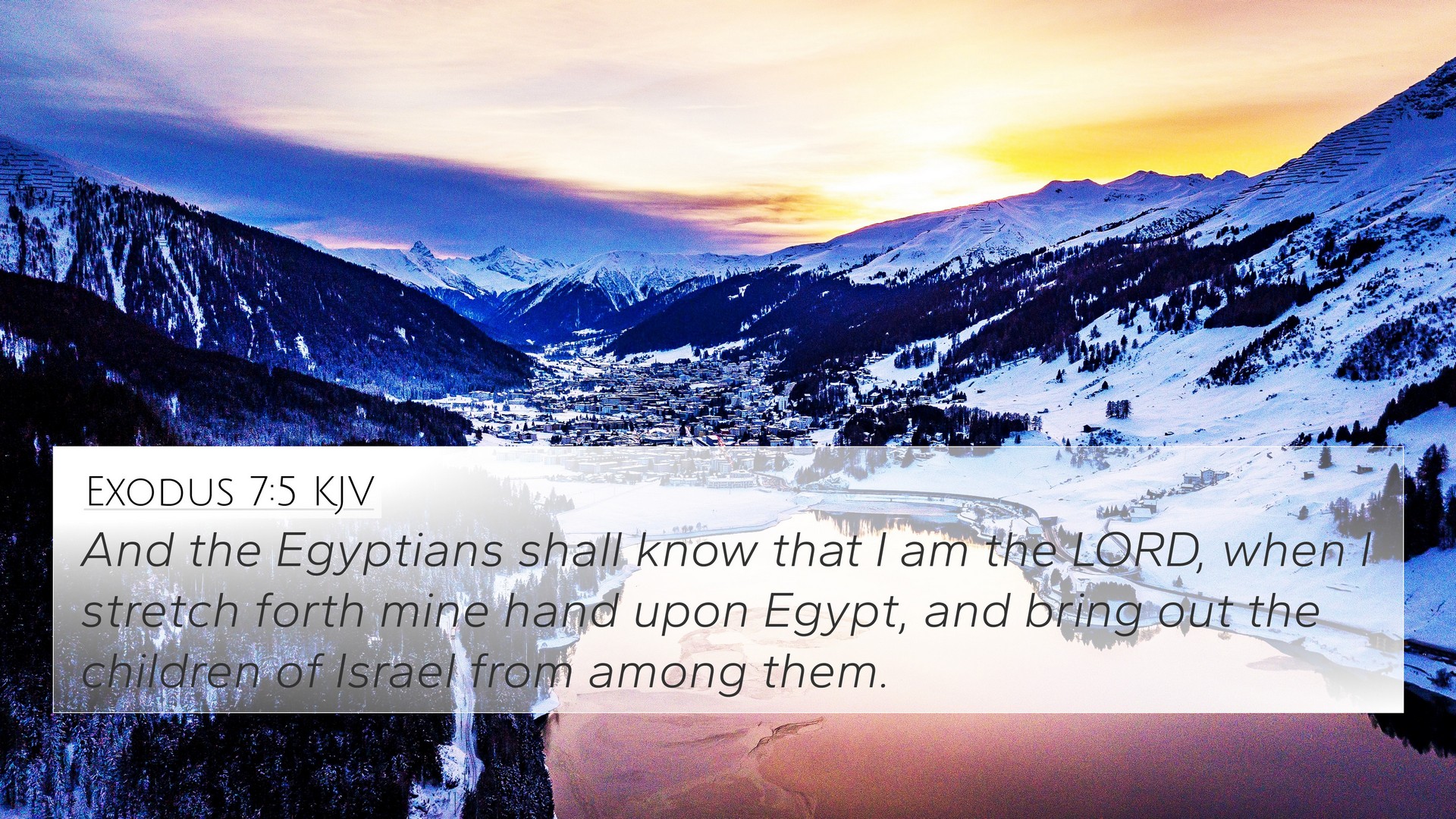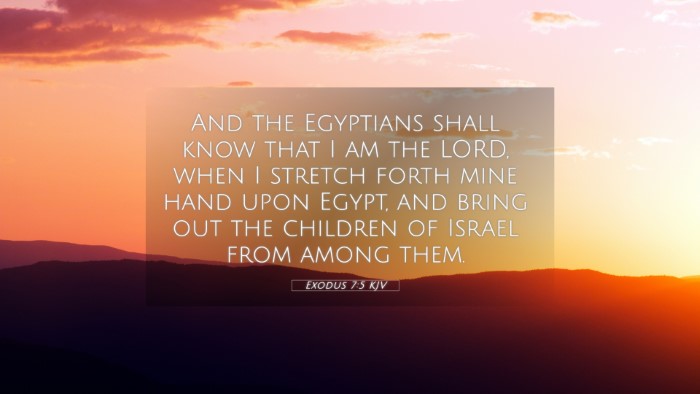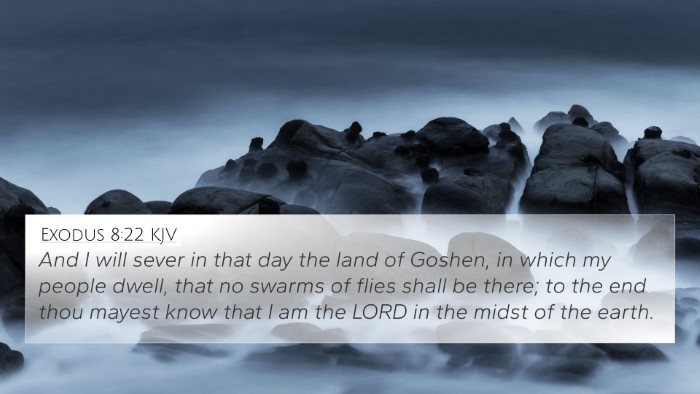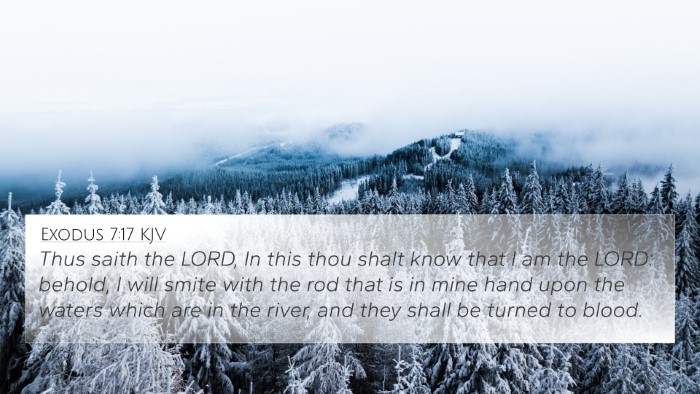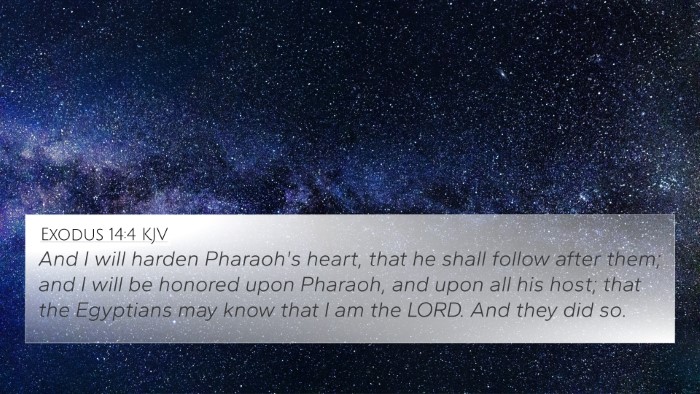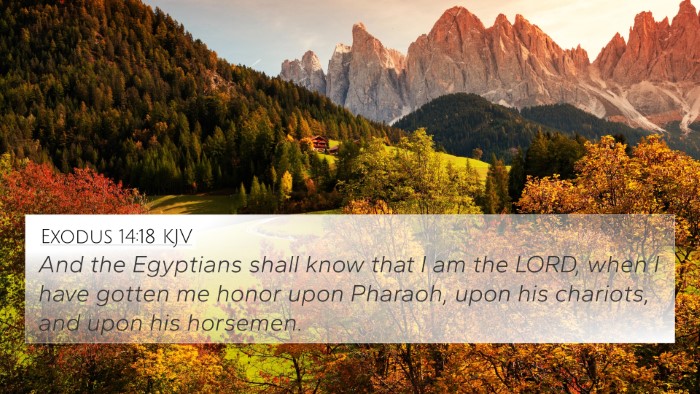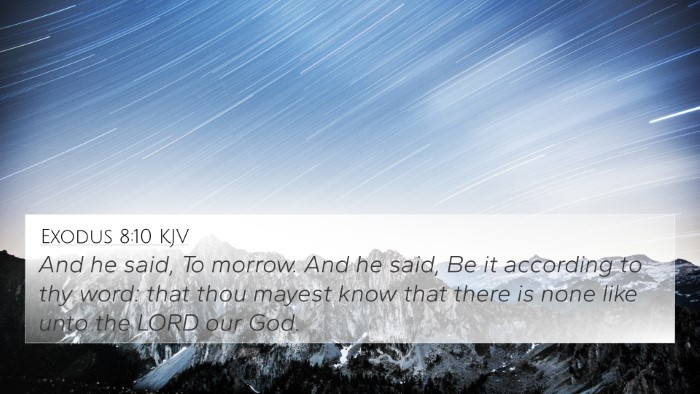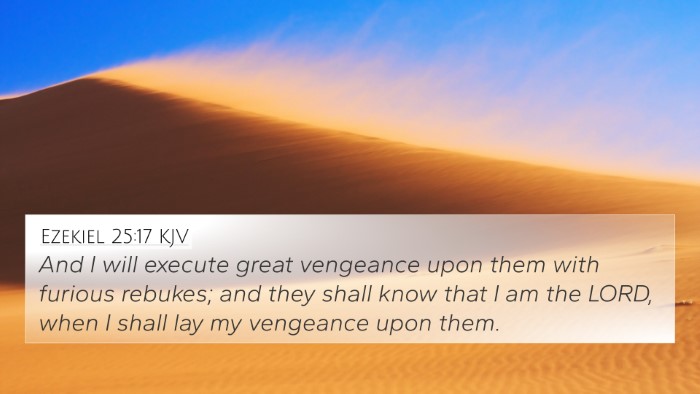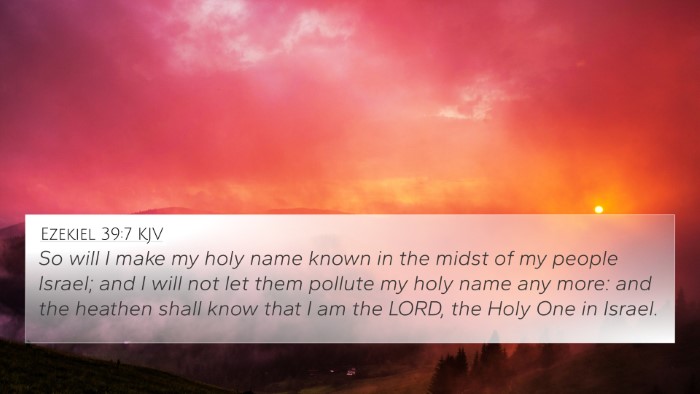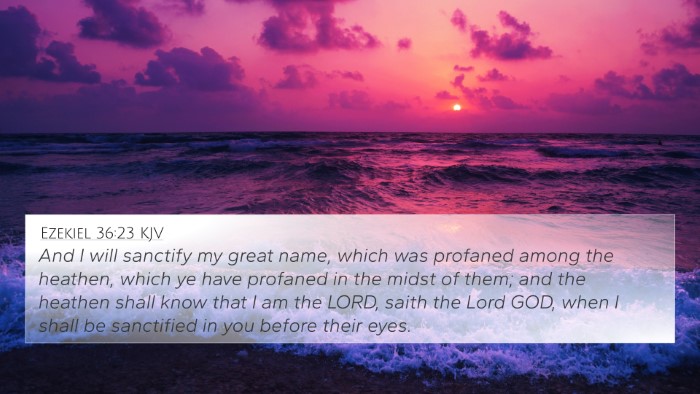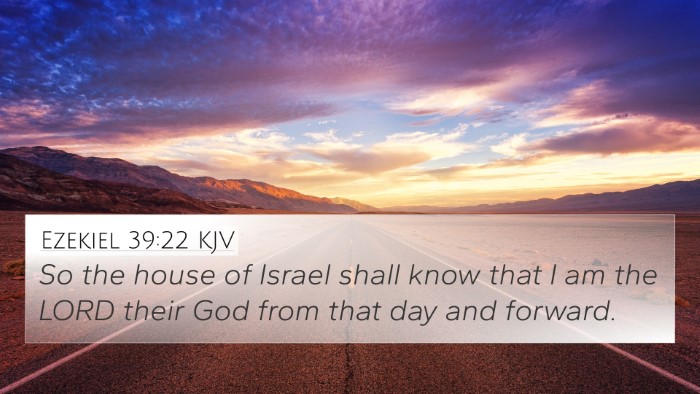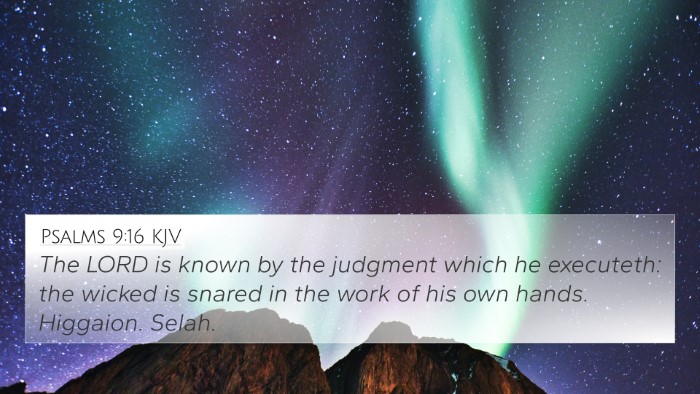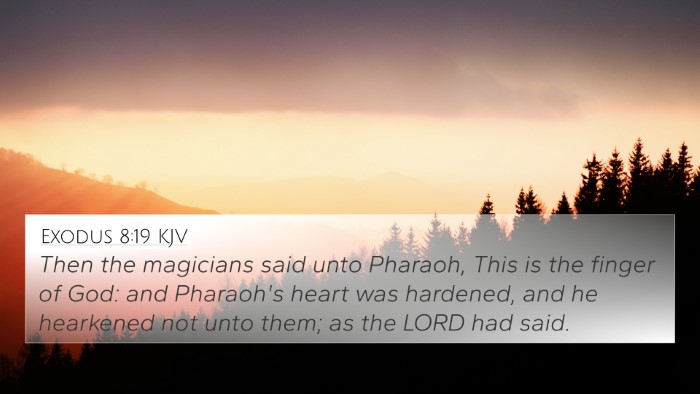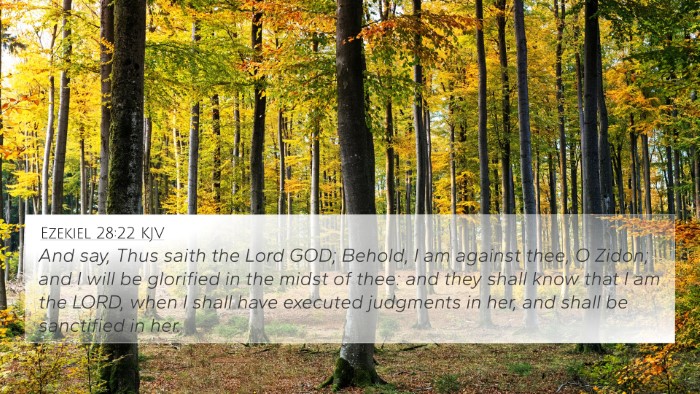Understanding Exodus 7:5
Exodus 7:5 states: "And the Egyptians shall know that I am the Lord, when I stretch forth mine hand upon Egypt, and bring out the children of Israel from among them."
This verse is pivotal, as it encapsulates the profound message of God's sovereignty and purpose in the liberation of the Israelites from Egyptian bondage. The verse is marked by divine promise and an assurance that through the acts of God, the people of Egypt will come to recognize the Almighty.
Commentary Insights
Matthew Henry's Commentary
Matthew Henry emphasizes that the primary intention of God's actions was to manifest His power and glory. He notes that God’s mighty works, especially the plagues, served as revelations not just to the Israelites but especially to the Egyptians. The purpose is to lead them to acknowledgment and repentance. Henry points out that this revelation is not limited to miraculous deeds, but extends to the understanding of God's character as a deliverer.
Albert Barnes' Commentary
Albert Barnes provides insight into the broader implications of this verse. He explains that it extends beyond mere deliverance; it signifies a call to recognize divine authority. Barnes discusses the role of signs and wonders, arguing that these acts were not just for the Israelites' benefit but also aimed at persuading Egypt’s hearts. The acknowledgment of God by the Egyptians can be seen as a precursor to judgment, emphasizing the gravity of ignoring divine intervention.
Adam Clarke's Commentary
Adam Clarke highlights the sociopolitical context of this verse. He draws attention to the manner in which God’s display of power was intended to unsettle both Pharaoh and his subjects. Clarke suggests that this demonstration was crucial for instilling fear and reverence for God among the Egyptians, who had long placed their faith in their own deities. He interprets this verse as part of a bigger narrative about God’s redemptive plan for His people in contrast to Egyptian oppression.
Bible Verse Cross-References
Exodus 7:5 connects with various other passages illustrating themes of God's power and the acknowledgment of His sovereignty. Here are some related scripture verses:
- Exodus 14:4 - "And I will harden Pharaoh's heart, and he shall follow after them; and I will be honored upon Pharaoh, and upon all his host; that the Egyptians may know that I am the Lord." This verse reiterates the theme of God’s glory being declared through His actions.
- Psalms 106:8-9 - "Nevertheless He saved them for His name's sake, that He might make His mighty power to be known." This underlines the reason for God's intervention: to display His majesty.
- Isaiah 43:11 - "I, even I, am the Lord; and beside me there is no savior." Here, God asserts His unique position as the sole redeemer, similar to the proclamation in Exodus 7:5.
- Ezekiel 20:9 - "But I wrought for my name's sake, that it should not be polluted before the heathen." This shows the importance of God’s name and reputation among different nations.
- Romans 9:17 - "For the scripture saith unto Pharaoh, Even for this same purpose have I raised thee up, that I might show my power in thee, and that my name might be declared throughout all the earth." Here, Paul draws a parallel to the story in Exodus, emphasizing God's sovereignty over nations.
- Hebrews 11:29 - "By faith they passed through the Red Sea as by dry land: which the Egyptians assaying to do were drowned." This reflects the outcome of the events God orchestrated for His people’s deliverance.
- 1 Samuel 12:24 - "Only fear the Lord, and serve him in truth with all your heart; for consider how great things he hath done for you." This encourages acknowledgment of God's works, relevant to the recognition prompted in Exodus 7:5.
- Revelation 15:4 - "Who shall not fear thee, O Lord, and glorify thy name? For thou only art holy: for all nations shall come and worship before thee; for thy judgments are made manifest." This indicates a future fulfillment of the promise of all nations recognizing God.
- Matthew 28:18 - "And Jesus came and spake unto them, saying, All power is given unto me in heaven and in earth." This New Testament affirmation of God’s authority links to the acknowledgment of His power in Exodus.
Connections Between Bible Verses
The connections between these passages highlight a thematic progression from God’s acts in Egypt to the broader revelation of His character and sovereignty throughout Scripture. These connections offer a comprehensive understanding of how God interacts with humanity.
Tools for Bible Cross-Referencing
To explore these cross-references further, various tools can be beneficial. These range from Bible concordances and cross-reference Bible study guides to advanced Bible study software that provide a robust system for exploring thematic and contextual connections across scriptures.
Cross-Referencing Bible Study Methods
Utilizing methods like thematic analysis, tracing biblical motifs, and comparing parallel passages enhances comprehension of Scripture. Engaging with these interconnected verses deepens one’s understanding of how the Old Testament themes resonate through New Testament fulfilments.
Conclusion
Exodus 7:5 serves as a landmark declaration of God's power and purpose. The insights from various commentaries emphasize its significance not only within its immediate context but also in the larger narrative of Scripture. Understanding this verse in conjunction with its cross-references enriches the reader’s grasp of the Bible’s cohesive message about God’s sovereignty and the call for recognition of His authority over all nations.
